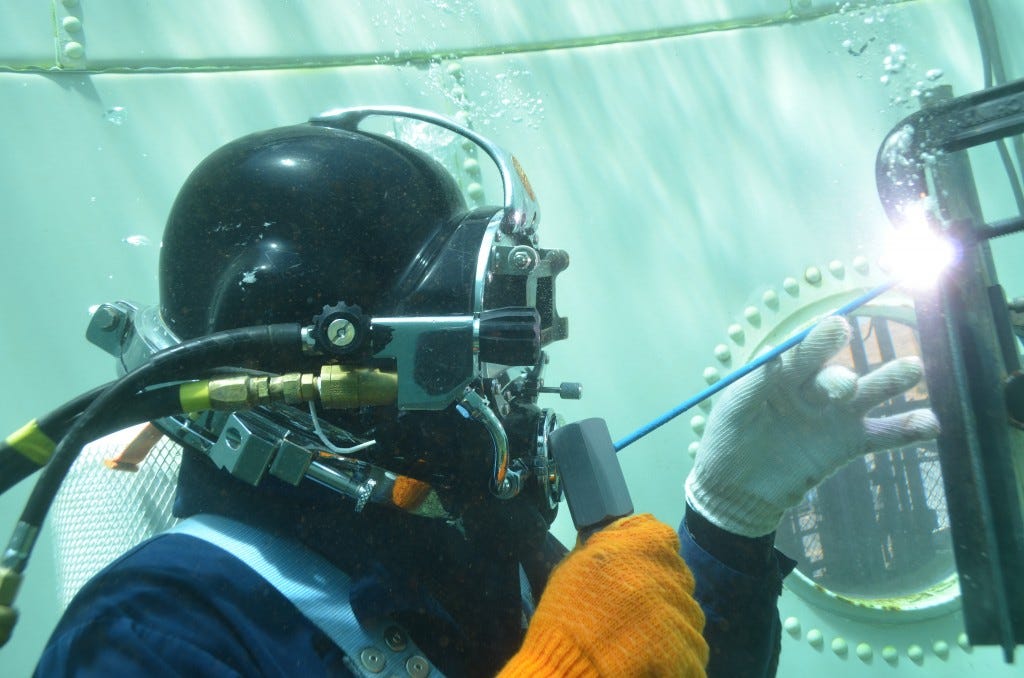Welding is a challenging job that demands a great deal of caution and safety measures. While some might think of underwater welding as something out of science fiction, it is indeed a real and tough profession, often considered one of the most perilous jobs globally.

Despite the risks involved, many are unaware of the substantial income earned by welders who undertake this hazardous task. The process of welding involves melting metals together using specialized tools and techniques, typically executed under intense heat.
The peril lies in the dual challenge of welding underwater, where two complex tasks converge. Operating in the depths of the ocean, underwater welders face escalating water pressure as they go deeper into the sea. This makes their work not only challenging but also extremely dangerous.
The deep ocean is characterized by high water pressure, complete darkness that is imperceptible to the naked eye. Specialized equipment and lighting become their lifelines in this demanding environment.
Adding to the complexity is the fact that water is an excellent conductor of electricity. This elevates the risk of electric shock, necessitating heightened vigilance. The presence of marine life further complicates the job, making it a formidable profession. To compound matters, underwater welders work against the clock, making it a race against time.
Operating within a confined time frame, they also contend with the fear of oxygen depletion. In the United States, those engaged in such underwater welding activities earn an annual income of around $67,000, and with experience, this figure can soar up to $100,000.
Underwater welding demands a distinctive skill set that not many can acquire. The limited pool of skilled individuals in this profession contributes to their high wages. Given the risks and specialized skills involved, individuals in this line of work are in high demand, especially in shipbuilding and bridge construction.
One of the drawbacks of underwater welding is the extended periods of time spent away from home and family, often stretching into weeks. However, the compensation for this sacrifice is the considerably high salary offered to these professionals.
Leave a Reply